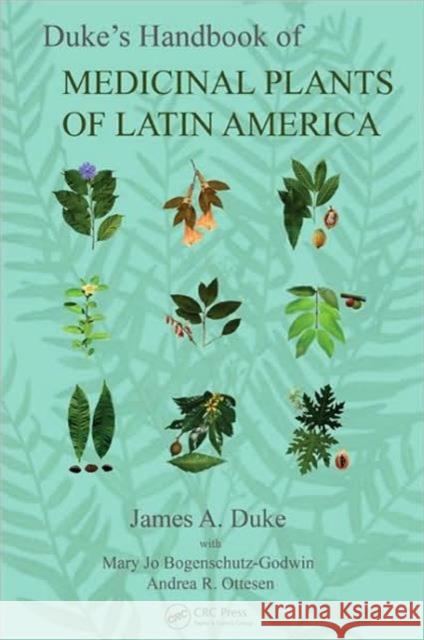Duke's Handbook of Medicinal Plants of Latin America » książka
Duke's Handbook of Medicinal Plants of Latin America
ISBN-13: 9781420043167 / Angielski / Twarda / 2008 / 832 str.
Finalist for 2009 The Council on Botanical & Horticultural Libraries Literature Award A Comprehensive Guide Addressing Safety, Efficacy, and Suitability About a quarter of all the medicines we use come from rainforest plants and more than 1,400 varieties of tropical plants are being investigated as potential cures for cancer. Curare comes from a tropical vine and quinine from the cinchona tree. A comprehensive guide to safety, efficacy, and suitability, Duke s Handbook of Medicinal Plants of Latin America responds to continuing interest in medicinal plants and the potential remedies they contain. Determine Which Species Can Be Used for Specific Targets The author of Green Pharmacy Herbal Handbook and CRC Handbook of Medicinal Herbs, James A. Duke covers roughly 500 of the more important Native Latin American medicinal plants in a highly organized format. After a brief introduction, each entry contains scientific and colloquial names, synonyms, reference to illustrations, notes, biological activities, medicinal indications, dosages, potential hazards, extracts, and references. This format supplies a starting point for determining which species can be used for specific targets. Better Data Helps You Focus Your Search Year-round moderate temperatures, abundant rainfall, and rich soils make tropical Latin America home to nearly 100,000 of the world s 300,000 known species of plants, and therefore home to untold numbers of potential cures. Focusing on 500 of the most well-known and well-studied plants, this book helps you focus your search for ammunition against constantly evolving pathogens and newly emerging diseases."











